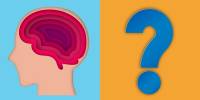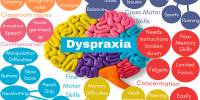Psychotherapy sessions with caregivers may help young children who have undergone considerable stress avoid catastrophic disease later in life, according to a new UC San Francisco study. Previous study has indicated that young children benefit psychologically for up to nine years following dyadic, child-parent trauma treatment, but this is the first time a biological advantage has been identified.
UCSF researchers investigated the impact of dyadic treatment on a biomarker called “age acceleration,” which measures how quickly or slowly a person’s body ages in comparison to their chronological age.
This “epigenetic clock” runs faster for people who have experienced early childhood trauma; that in turn puts them at greater risk for heart disease, cancer, obesity and asthma. The study compared two groups of Bay Area children between the ages of 2 and 6 years old with traumatic experiences. Before treatment, both groups had similar rates of biological age acceleration.
When both parent and child have experienced trauma, it exacerbates the effects of the trauma. Our approach is to heal the relationship and the trauma of both child and adult in sessions together. Relationships are the key to health, starting in early childhood.
Alicia Lieberman
One group received up to 20 weekly sessions of Child-Parent Psychotherapy (CPP), a program developed by Alicia Lieberman, PhD, head of UCSF’s Child Trauma Research Program and research co-author. The other group did not get CPP.
The 45 youngsters who took part in the therapy experienced less age acceleration than the 110 who did not. Though the difference was slight, it could be significant since even minor biochemical alterations early in life can lead to large disparities in health outcomes over time, according to senior author Nicole Bush, PhD, a psychologist and chief of UCSF’s Division of Developmental Medicine.
“These findings bolster the case for making sure families who experience trauma and stress can access child-parent therapies, in order to improve mental and physical health,” said Bush, who is the Lisa and John Pritzker Distinguished Professor of Developmental and Behavioral Health.
The study appears in Psychological Science.

Relationships matter to health
More than 80% of the children in the treatment group and two-thirds of the comparison group were Latinx, which is significant because families of color and low-income families are more frequently exposed to trauma than white families with higher incomes, despite being underrepresented in medical research.
Lieberman, the Irving B. Harris Endowed Chair in Infant Mental Health, stated that the individuals’ level of trauma was higher than what is generally researched in children, making the findings all the more notable.
“We’re talking about very acute trauma in young children, things like loss of a parent, maltreatment and community violence,” said Lieberman. “The children in the intervention had an average of five traumatic events under age six, when the literature shows that if you have four or more before age 18, you are more likely to develop one of the 10 leading causes of death as an adult.”
Their parents, meanwhile, had an average of 13 traumatic episodes, putting them at a higher risk of struggling to regulate their own emotions and actions in response to their children’s problematic conduct, according to Lieberman.
Therapists use toys in Child-Parent Psychotherapy to assist children process feelings and thoughts connected to their traumatic experiences, as well as to help parents comprehend how their children’s conduct is related to their experiences. They also help parents and children bond by guiding them through positive social interactions.
“When both parent and child have experienced trauma, it exacerbates the effects of the trauma,” Lieberman said. “Our approach is to heal the relationship and the trauma of both child and adult in sessions together. Relationships are the key to health, starting in early childhood.”
A critical time for development
Interventions before the age of five, when a child’s brain is in its most dramatic stage of development, have the greatest impact on a child’s mental and physical health later in life. In recent years, California’s Department of Health treatment Services has established benefits to support family therapy and dyadic treatment for children Medi-Cal patients beginning with birth. Zuckerberg San Francisco General Hospital provides this service and advises medical practices throughout California on how to perform and be reimbursed for it.
The researchers believe that these findings will highlight the social, ethical, and economic benefits of therapy-based alternatives to pharmaceuticals for addressing family trauma.
“Something as fundamental as putting families together and naming the trauma, and creating a setting of emotional safety and healing, can lead to biological repair that may benefit mental and physical health across the life course,” Bush said. “We hope policymakers and practitioners take notice.”
















